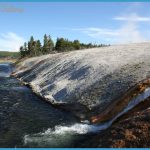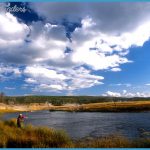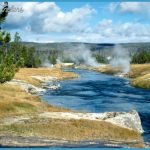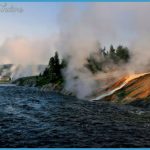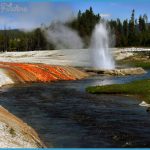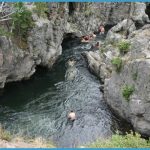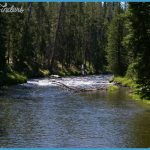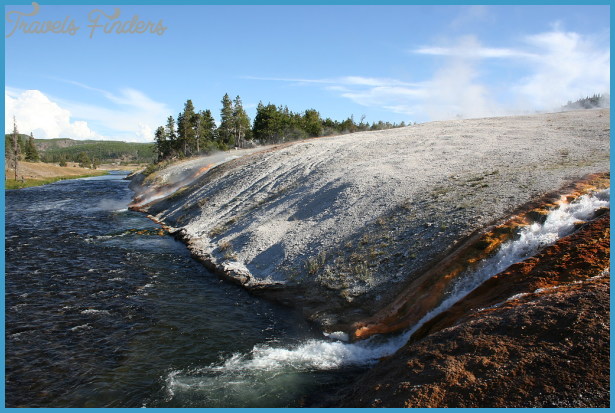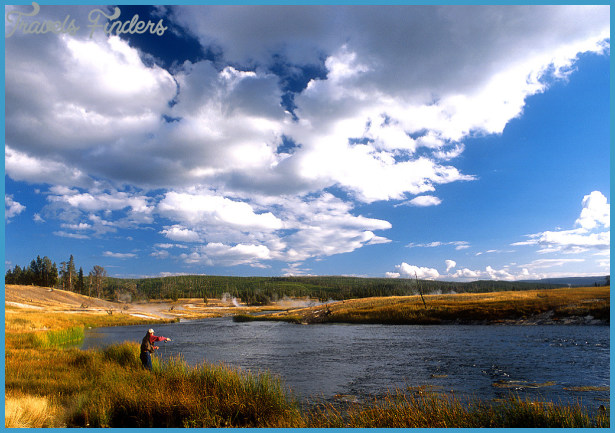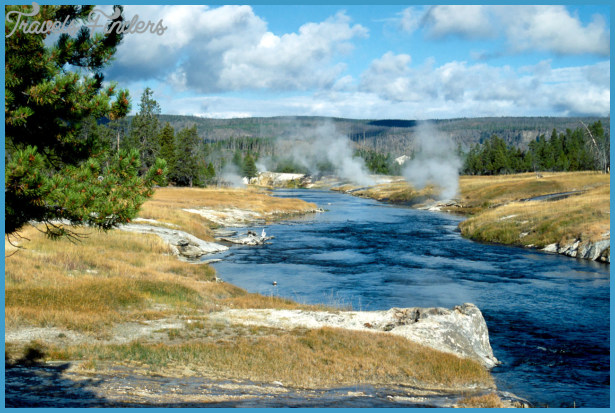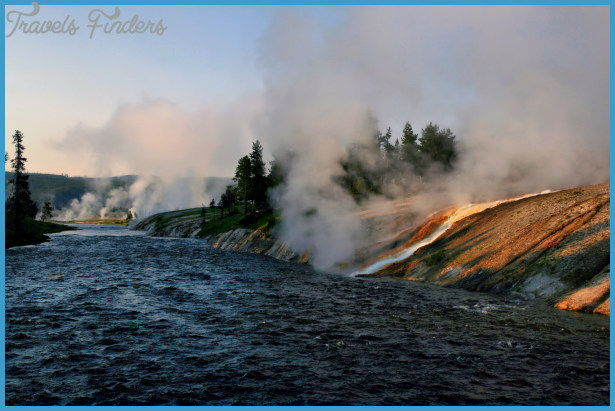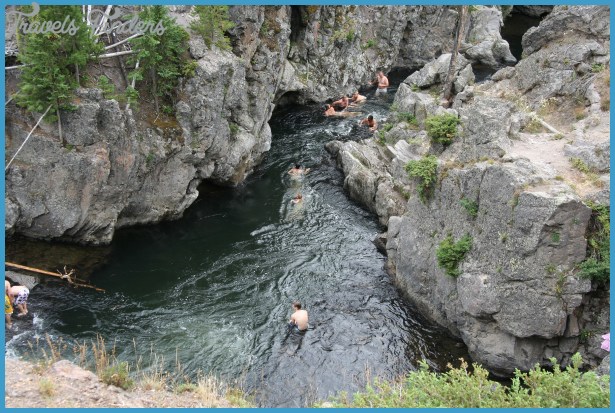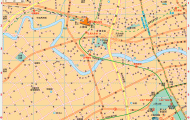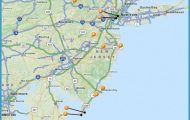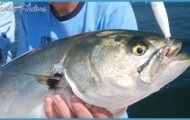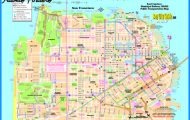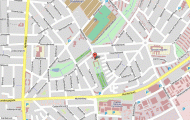Contrary to what you might think, the Firehole River did not get its name from the fact that hot springs and geysers adorn its banks for many miles and pour their hot waters into the stream. In the early 19 th century, hole was a word for a mountain-bound valley, and the Burnt Hole or Fire Hole was a burnt-over section of the Madison River Valley. Trappers (perhaps even the famous Jim Bridger) transferred the latter name to the river. Bridger is credited with having concocted the notion (not supported by scientists!) that the water flowed downhill here so fast that the rocks were heated by the friction.
Although the Firehole’s name had another origin, in some places hot springs in the bed of the river do keep the rocks hot. Perhaps early trappers forded this river in their bare feet, since they needed to keep their boots or moccasins dry, as well as their powder. What is known for sure is that in 1870 Nathaniel Langford discovered a hot spring vent in the river while crossing it near Castle Geyser in Upper Geyser Basin. These facts certainly contribute to the aptness of the name. The temperature of the Firehole is definitely influenced by the gallons of runoff water contributed by all the geothermal sources from Lone Star Geyser (the geyser that’s farthest upstream) to the springs along Fountain Flats Drive.
The river’s temperature rises a total of almost 25°F (14°C) in this meandering stretch of about 13 miles (21 km). access spring for bathing and cooking, now it’s lukewarm. Near the river is Maidens Grave Spring, named in memory of the wife of the winter hotel keeper at Marshall House. Her gravestone is between the present-day picnic area and the Firehole River’s confluence with Nez Perce Creek. As you continue on Fountain Flats Drive, you’ll be in an area heavily burned by the North Fork fire of 1988. Until the mid 1990s, this road continued to a thermal area, two trailheads, and a pair of fishing lakes. The road was closed off in an effort to mitigate impact on the wetland area and to create an additional biking opportunity. You have the option of turning back at the turning circle or leaving your car to walk about a quarter mile (0.4 km) to Ojo Caliente Spring. Ojo Caliente is the most accessible of the River Group of hot springs and small geysers.

